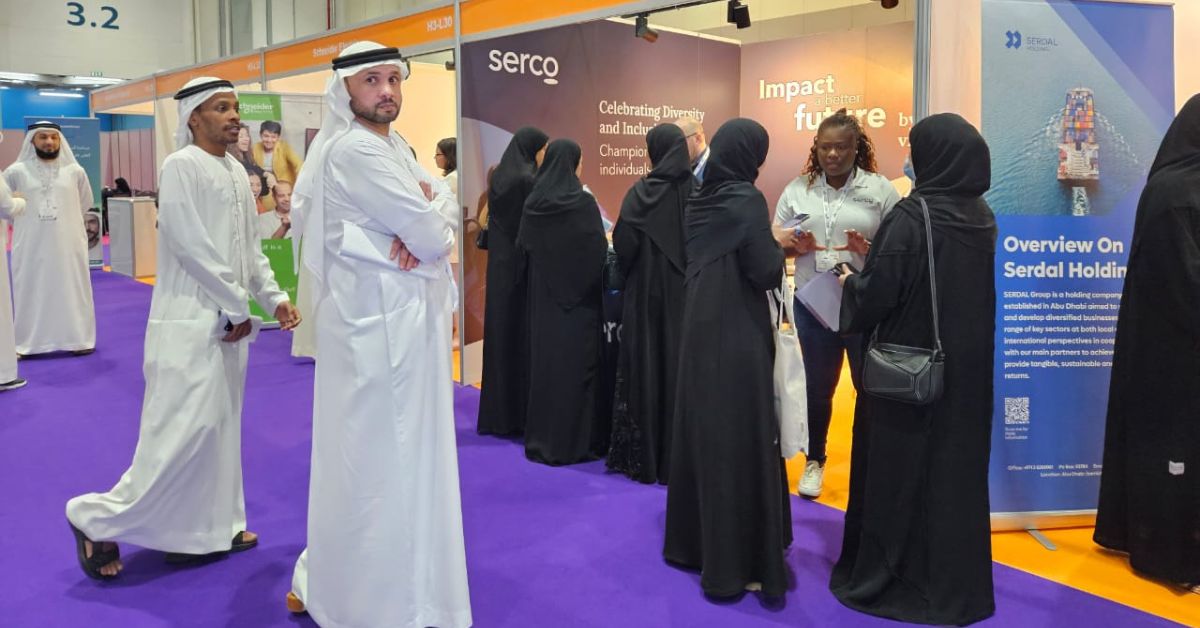DUBAI, UAE — The Gulf Cooperation Council (GCC) has increasingly recognized the need for sustainable practices in shaping its economic future in recent years. Embracing green strategies and sustainability practices is not just an environmental endeavor; it’s a transformative force driving job creation, economic diversification, and global investment.
In an interview with Phil Malem, CEO of Serco Middle East, TRENDS explores the profound impact of sustainability on the GCC economy and the promising opportunities it presents for the region.
Shaping economic landscapes through sustainability
Malem sees a significant transformation in the GCC’s economic landscape through the adoption of green strategies. The region stands to gain from increased energy efficiency, reduced energy costs, and enhanced economic competitiveness.

Green technologies offer an opportunity for the GCC to address environmental challenges like water scarcity and air pollution while attracting foreign investment through the promotion of environmentally responsible practices. As global interest in sustainable investments intensifies, the GCC’s dedication to green strategies could establish it as a key player in the global sustainability movement.
Guided by visionary leaders and a commitment to environmental stewardship, the region is charting a future where economic growth is closely linked with sustainable practices. This shift is not only a response to global environmental challenges but also a strategic step to lessen reliance on traditional sectors, such as oil and gas, thereby ensuring long-term economic stability.
The adoption of green strategies in the GCC has a cascading effect across various industries, paving the way for economic diversification and job creation. From renewable energy projects utilizing solar and wind power to sustainable water management and transportation initiatives, the GCC is moving away from conventional economic models. By fostering industries that align with sustainability objectives, the region is addressing environmental challenges and strategically reducing its vulnerability to fluctuations in energy markets. This commitment to sustainable industries drives innovation and positions the GCC as a formidable force in the burgeoning green economy.
At A Glance GCC Embraces Sustainability: The Gulf Cooperation Council is increasingly focusing on sustainable practices to shape its economic future. Green Strategies Transforming GCC: Adoption of green strategies leading to increased energy efficiency, reduced costs, and enhanced competitiveness. Sustainability in Various Sectors: GCC integrating green practices in manufacturing, supply chains, transport, and hospitality. Renewable Energy and Economic Diversification: GCC focusing on renewable energy, particularly solar and wind, for economic diversification. Sustainability as a Job Catalyst: Green technologies are creating job opportunities and attracting foreign investments. Challenges in Sustainable Growth: GCC faces challenges like water scarcity and extreme climates in its sustainability journey. Investment in Green Technologies: GCC's investment in renewable energy and green technologies aligns with global climate change efforts. Emerging Trends in Sustainability: GCC focusing on smart cities, IoT technologies, and sustainable public transport systems.
The integration of green technologies in the Gulf Cooperation Council (GCC) region is emerging as a significant catalyst for job creation, offering opportunities across diverse sectors. As businesses increasingly adopt purpose-led models, there’s a heightened focus on embedding green practices in manufacturing, supply chains, transport, and hospitality. This transition extends beyond environmental responsibility; it is a strategic response to consumer demands for eco-conscious products and services. The GCC’s commitment to sustainability is reshaping its economic landscape and driving a cultural shift in the business ecosystem, where sustainability and economic growth coexist in harmony.
Industries undergoing significant shifts
Certain industries within the GCC are on the cusp of major transformations due to the growing emphasis on sustainability. The renewable energy sector, particularly solar and wind energy, is poised for significant expansion. Furthermore, water management and transportation sectors are experiencing a paradigm shift. Malem notes Serco’s role in fostering sustainable mobility in innovative projects like the Red Sea in Saudi Arabia, where a variety of green transportation modes are being integrated.
The region stands to gain from increased energy efficiency, reduced energy costs, and enhanced economic competitiveness.
Phil Malem, CEO of Serco Middle East
This pivot towards sustainable industries is vital for economic diversification, moving away from traditional sectors like oil and gas. The GCC is aiming to build a resilient and diversified economy through new job creation, attracting foreign investment, and encouraging innovation.
Green technologies: A catalyst for job creation
Embracing green technologies and sustainable practices goes beyond environmental duty, acting as a catalyst for job creation. Sustainability practices are permeating all aspects of business operations, from manufacturing and supply chains to transportation and hospitality. Companies operating with purpose-led models are increasingly attractive to talent, in line with consumer preferences for environmentally responsible products and services.
Transitioning towards clean energy
The shift towards cleaner, more sustainable energy sources promises significant economic benefits for the GCC. Anticipated positive outcomes include job creation, inward investment, export potential, and improved environmental conditions. By committing to sustainable energy production, the GCC countries are aligning with global efforts to combat climate change while fostering economic growth.
Integrating sustainability into resource management
The concept of a circular economy, characterized by efficient resource utilization, waste minimization, and the recycling and reuse of materials, is gaining momentum in the GCC. This approach not only addresses environmental concerns but also offers economic opportunities, as it promotes the sustainable management of resources, potentially transforming the region’s economic dynamics.
Resource management strategies in the GCC include conserving marine resources, sustainable fisheries, and a focus on sustainable tourism. According to Malem, these initiatives aim to ensure long-term economic stability by preserving natural resources and promoting environmentally friendly practices.
Attracting foreign investments through sustainability
The GCC’s emphasis on sustainability is not just a local endeavor but also a means to attract foreign investments and partnerships. Collaborating with international tourism organizations to promote eco-tourism and nature-based tourism is seen as a promising avenue. Foreign investments in sustainable projects, combined with the GCC’s commitment to a green economy, open up opportunities for international cooperation that align with global sustainability goals.
Successful green projects in the GCC
Malem highlights Serco’s involvement in one of the world’s most ambitious and visionary regenerative tourism destinations: the Red Sea project. This carbon-neutral destination integrates multiple modes of green transport, ranging from seaplanes to buggies, to create a seamless luxury experience. This project is a prime example of the potential economic benefits and positive impacts on stakeholders that successful green initiatives can achieve.
Overcoming challenges for sustainable growth

While sustainability offers numerous benefits, the GCC faces distinct challenges such as water scarcity, extreme climates, and the necessity of behavioral change. Malem underscores the importance of conducting business with a purpose-led approach to instill cultures of sustainability, thereby effecting meaningful changes in mindsets and operations.
Aligning sustainability with economic goals
The GCC’s commitment to sustainability aligns seamlessly with its broader economic objectives and visions. Long-term strategies to diversify away from oil and gas revenues necessitate a focus on sustainability initiatives. Investments in renewable energy, green technologies, and smart cities are pivotal in achieving economic diversification and building a sustainable future.
Emerging trends and technologies in sustainability
GCC economies are keenly observing emerging trends and technologies in sustainability, focusing on smart cities, urban planning, IoT technologies, electric and hydrogen fuel cell vehicles, and sustainable public transportation systems. These trends demonstrate a commitment to developing resilient, efficient, and environmentally conscious infrastructure for future generations.
The GCC’s journey toward sustainability is a transformative process, shaping not only its environmental legacy but also its economic future. With visionary leaders and committed businesses, the region is poised to become a global model for sustainable practices, showcasing that economic growth and environmental stewardship can coexist. As the GCC continues to evolve, its dedication to sustainability stands as an inspiring example for the rest of the world.

